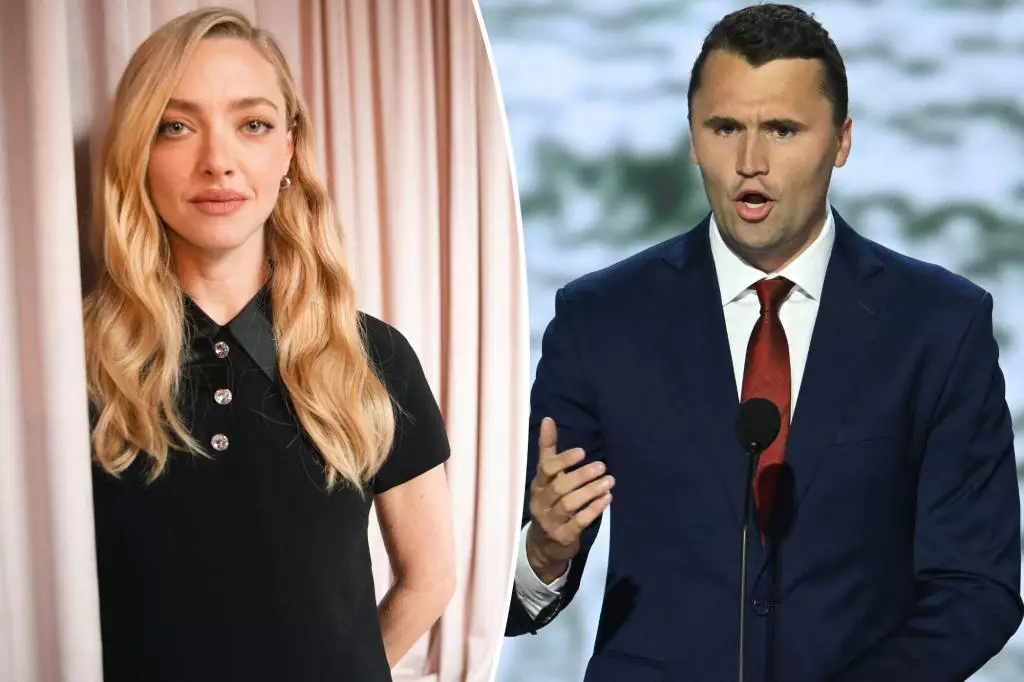In an era where social discourse is increasingly divisive, authenticity often becomes a battleground. Amanda Seyfried’s recent comments exemplify the courage—and the controversial nature—of speaking candidly amid societal tensions. Her defense of calling Charlie Kirk “hateful” highlights a willingness to confront uncomfortable truths, even at the risk of public backlash. It brings to light the importance of honest dialogue about hate speech and violence, challenging us to question whether societal norms facilitate genuine conversations or suppress uncomfortable truths. Seyfried’s stance signals an urgent call for re-evaluating how kindness and accountability coexist in public discourse, advocating for a space where nuanced opinions can flourish without fear of ostracization.
The Complexities of Moral Judgment in the Era of Social Media
Seyfried’s attempt to clarify her comments underscores an important dilemma: navigating the fine line between expressing personal convictions and fueling ideological conflicts. Her assertion that she can condemn violence while criticizing certain rhetoric raises a fundamental question about moral complexity. Are we, as a society, capable of holding multiple truths simultaneously? Her critique of Kirk’s rhetoric invites scrutiny—are we willing to confront the uncomfortable fact that words can breed violence? Or do we prefer to reduce disagreements to simplistic good-versus-evil narratives? The backlash she received exposes our collective discomfort with moral ambiguity. For celebrities and everyday citizens alike, this dilemma signifies a broader societal struggle with accepting multifaceted realities.
The Danger of Moral Absolutism and the Rise of Cancel Culture
The swift backlash against Seyfried illustrates a perilous trend toward moral absolutism, where nuance is sacrificed for ideological purity. Her critics, some demanding her removal from future projects, exemplify a culture quick to condemn rather than understand. This environment stifles meaningful dialogue and promotes a binary view of morality—either you’re with us or against us. The call for her “firing” and boycotts reflect a society that often prefers spectacle over substance, opting for punishment over understanding. Such dynamics threaten to censor honest, imperfect individuals willing to voice unpopular opinions. It’s a stark reminder that cancel culture may diminish the capacity for genuine societal growth by punishing complexity and nuance.
The Tragedy of Violence and the Responsibilities of Public Figures
The murder of Charlie Kirk is a stark manifestation of the violence roiling through our society. Seyfried’s comments connect to larger questions about responsibility—both personal and societal—in the face of such tragedies. While she refrained from excusing violence, her critics accused her of insensitivity, underscoring a societal tendency to judge without fully engaging with intent or context. Celebrities like Seyfried operate under intense scrutiny, their words dissected for deeper meanings or misinterpretations. This incident prompts reflection on the role of public figures in fostering constructive debate rather than fueling hostility. It urges us to consider whether our collective outrage serves justice or simply feeds corrosive cycles of condemnation.
Nurturing Authentic Discourse in a Fragmented Society
Despite the chaos of social media, Seyfried’s insistence on “nuance” offers a vital lesson: humanity’s greatest strength lies in our capacity to understand complexity. Her call for “spirited discourse” challenges us to resist the temptation of oversimplification. In a society where emotional reactions often dominate rational discussion, fostering spaces for honest debate remains crucial. It asks us to move beyond black-and-white morality and embrace conversations that acknowledge discomfort while seeking mutual understanding. If we choose to elevate dialogue over condemnation, society might unlock pathways toward healing rather than division. Seyfried’s stand, provocative as it is, reminds us that progress demands courage—an acceptance that human issues rarely have easy answers, but deserve our ongoing effort to confront them thoughtfully.

Leave a Reply